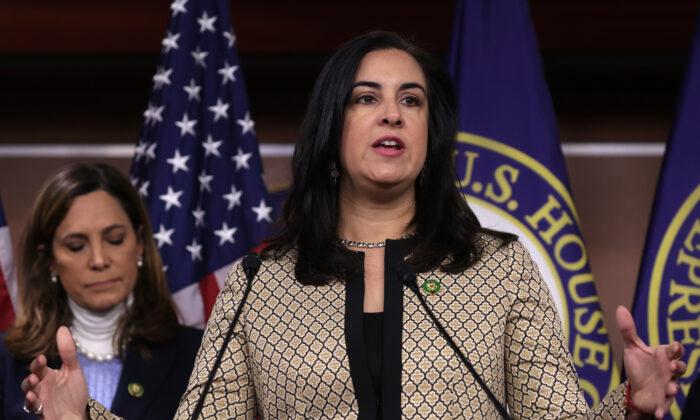Dozens of members of Congress and their close relatives continued to sell off banking stocks amid the extreme financial turbulence in March prompted by the collapse of Silicon Valley Bank (SVB), according to an analysis by Capitol Trades.
Many of the selloffs came at the same time as some of the lawmakers were actively meeting with banking regulators to discuss the financial turmoil.
“We have to try and contain this from spreading among other banks. I am still worried about tomorrow, Monday, when the markets open,” he said.
“There are a lot of people working behind the scenes on a bipartisan basis ... I got off a bipartisan briefing, and there are Democrats and Republicans in both chambers worried about this and working with the administration to try and prevent contagion,” Moskowitz added.
Seacoast Banking shares fell nearly 20 percent on March 13.

Other Lawmakers Follow Suit
The bank later received a $30 billion rescue deal from 11 of the largest financial institutions in the United States, staving off another failure.Elsewhere, the wife and children of Rep. Ro Khanna, (D-Calif.) sold $1,000 to $15,000 shares of First Republic Bank on March 15.
Curtis also sold Bank of America shares.
Meanwhile, Rep. Nicole Malliotakis (R-N.Y.), who sits on the House Ways and Means Committee, reported buying between $1,001 and $15,000 in New York Community Bancorp stock on March 17, a few days after meeting with regulators to discuss the collapse of Signature Bank, according to the publication.

Senators Introduce Trading Bill
In an emailed statement to The New York Times, which also reported on the stock selloffs, a spokesperson for Moskowitz said that the congressman’s financial adviser has suggested the Seacoast share sales as a way to “diversify his young children’s holdings.”Moskowitz said the congressional briefing on the bank crisis had taken prior to his television interview and after the shares were sold.
A spokesperson for Goldman told the publication that his portfolio is “managed by a third party without his knowledge” and that he will be establishing a blind trust to “avoid any appearance of a conflict of interest.”
Khanna told the publication that his filings relate to trades made by a “diversified trust” belonging to his wife and young children and that he is not involved in it.
A spokesperson for Curtis did not respond to the publication’s requests for comment.
The Epoch Times has contacted his office for comment.
Malliotakis’s spokesperson told The Wall Street Journal that her financial adviser recommended she make the trade and denied having any knowledge of New York Community Bancorp’s plan to buy failed Signature Banks assets, while a spokeswoman for Blumenauer told the outlet that he was not aware of that trade as it was made by his wife
“It’s simple: members of Congress are supposed to serve the American people, not their stock portfolios,” said Brown in a statement. “Elected officials have access to private information that can affect individual companies and entire industries. We need more accountability and transparency to prevent members from abusing their positions for personal gain.”






Friends Read Free